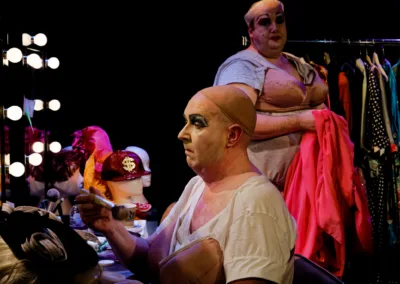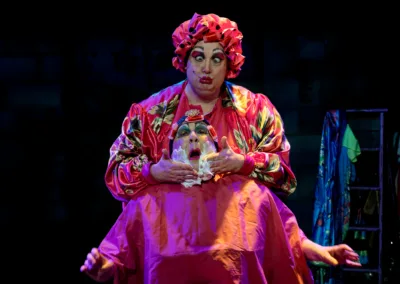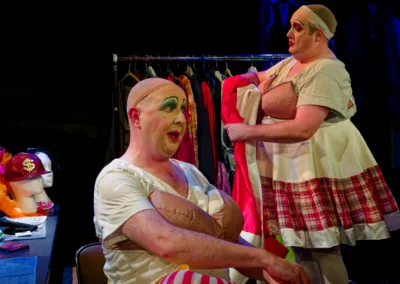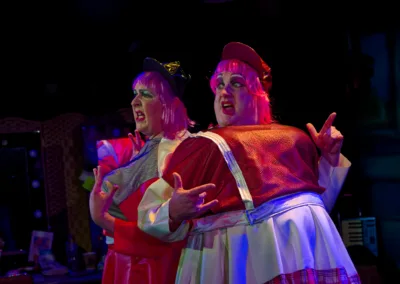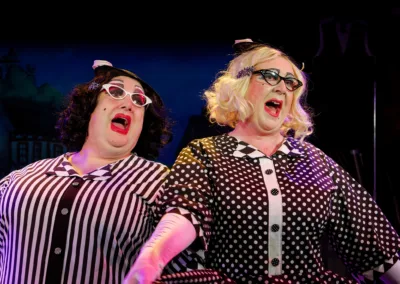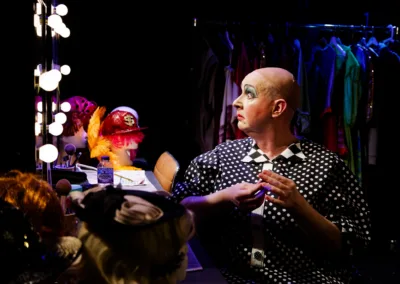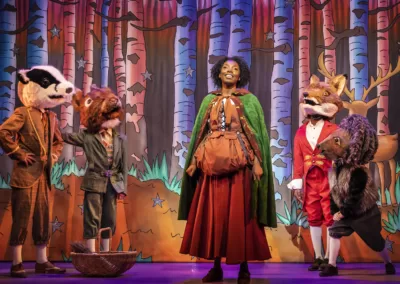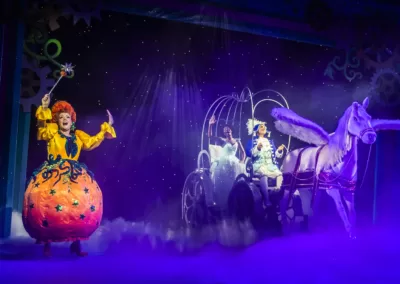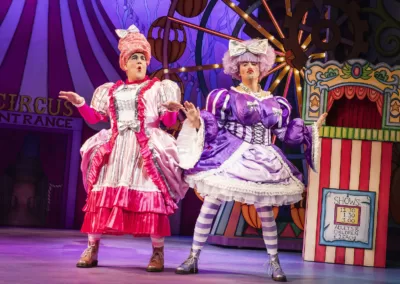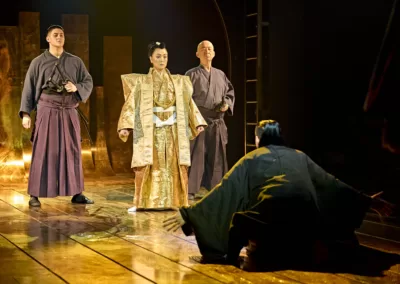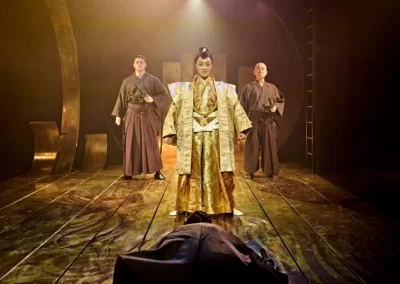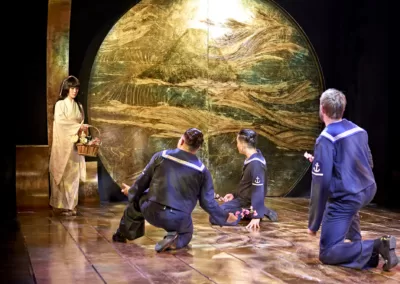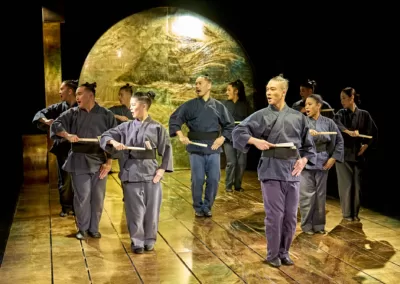
Messiah
George Frederick Handel
Merry Opera Company
Music Director Will Sharma
Organist Jack Stone
Stage Director Hohn Ramster
Revival Director Lorrie Hay
It isn’t a proper Christmas unless, and until, I’ve heard a decent Messiah. And this year Merry Opera Company, whom I’ve seen in action many times before, obligingly staged theirs in a church which is walking distance from my home, as part of their 2023 tour.
“Staged” is the key word because this is John Ramster’s attempt to find contemporary stories in Handel’s music and it’s the sixteenth time this production has toured so it clearly ticks lots of boxes for many people.
Twelve people arrive – in many cases emerging from spare seats in the audience – at a church presenting various degrees of anger, distress, despair, puzzlement, complacency and more. Each has been assigned a personal story although the audience never knows what these are.
It brings, however a completely fresh dimension to music that I’ve sung, played and heard many, many times going all the way back to school days. And that’s the moving, magical thing about this production, which I’ve seen before in a village church in Kent but that was some years ago.
For a start, doing it like this, means that it all has to be from memory, which adds to the immediacy. Second – with only three singers to each line including solos – the difference between choruses, solo numbers and recitative gets blurred. And it means you can split numbers between singers. I really like “I know that my redeemer liveth” shared between two altos and a counter tenor (Joshua Elmore), for example. It feels warm – and like almost every note in this performance – as if each singer means every single word. Elmore does a beautiful “Oh thou that tellest” too.
These singers sing to each other as if they’re in opera and the acting adds resonance. Elmore weeps as he sings “He was despised”. Glenn Tweedie’s opening “Comfort Ye” is almost shocking in the way he conveys the need for comfort in the lovely dramatic acoustic of St John the Baptist Church. And just occasionally – and rather effectively – they come together as a quasi-conventional choir for numbers such as “Since man came by death” whose beauty, harmony and agony really has to be listened to attentively. If this were a different sort ofmusical theatre you’d call it a “show stopper”.
Conductor Will Sharma is positioned so that he can be seen by both organist and singers and they must have to work this out very carefully in each different venue. In the performace I saw he was standing on a chair, score on iPad, next to a pillar a few feet from my seat near the back. There are times, nonetheleswhen some of the singers can’t see him and there’s a time lag to be negotiated but they do a pretty good job of staying together. Only once in the performance I saw/heard did it lose its way and then it was only for a few bars.
The very best thing about this take on Messiah is the surround sound effect and I remember thinking that last time too. Singers are all around you and it’s like being immersed in quadrophonic magic and that’s rare in live performance. It makes you hear, and listen, to every line if the person with the next entry is, literally, standing next to you or just a few feet behind, And when they get to “Worthy as the Lamb” which comes from all corners and sides it’s electrifyingly magnificent, Finally they group at the front for “Amen” and Sharma obviously loves that summative, sublime top A, nine bars before the end, as much as I do because he puts a dramatic accent on it.
As for the “action”, well, there’s a great deal of arm flailing which puts me in mind of the semaphore I was made to learn in the Brownies or of children playing aircraft. And I have no idea why everyone is in funeral black and apparently at a church service for “Behold the Lamb of God” or why they then change into cricket whites or why most of them lie as if dead in the aisle during one number. I suppose punching the air throughout “Hallelujah” and hopping on and off boxes as if doing a gym exercise, does convey a sense of excitement if you don’t think the music already does that.
Moreover, it’s quite a feat to sing part of “If God be for us” while hoisted, horizontal and corpse-like six feet in the air by four others as Valerie Wong does. I simply can’t imagine singing the rapid semiquavers in “And he shall purify” and having to dance at the same time either. And Glenn Tweadie dons a floaty white shroud/beach robe under which he changes his trousers while singing “But thou didst not leave”. These people are opera singers and, evidently, well accustomed to theatrical multi-tasking.
None of that matters, though. It’s the quality of sound and singing which rules the day. And it does just that – in spades. My Christmas has really begun now.


